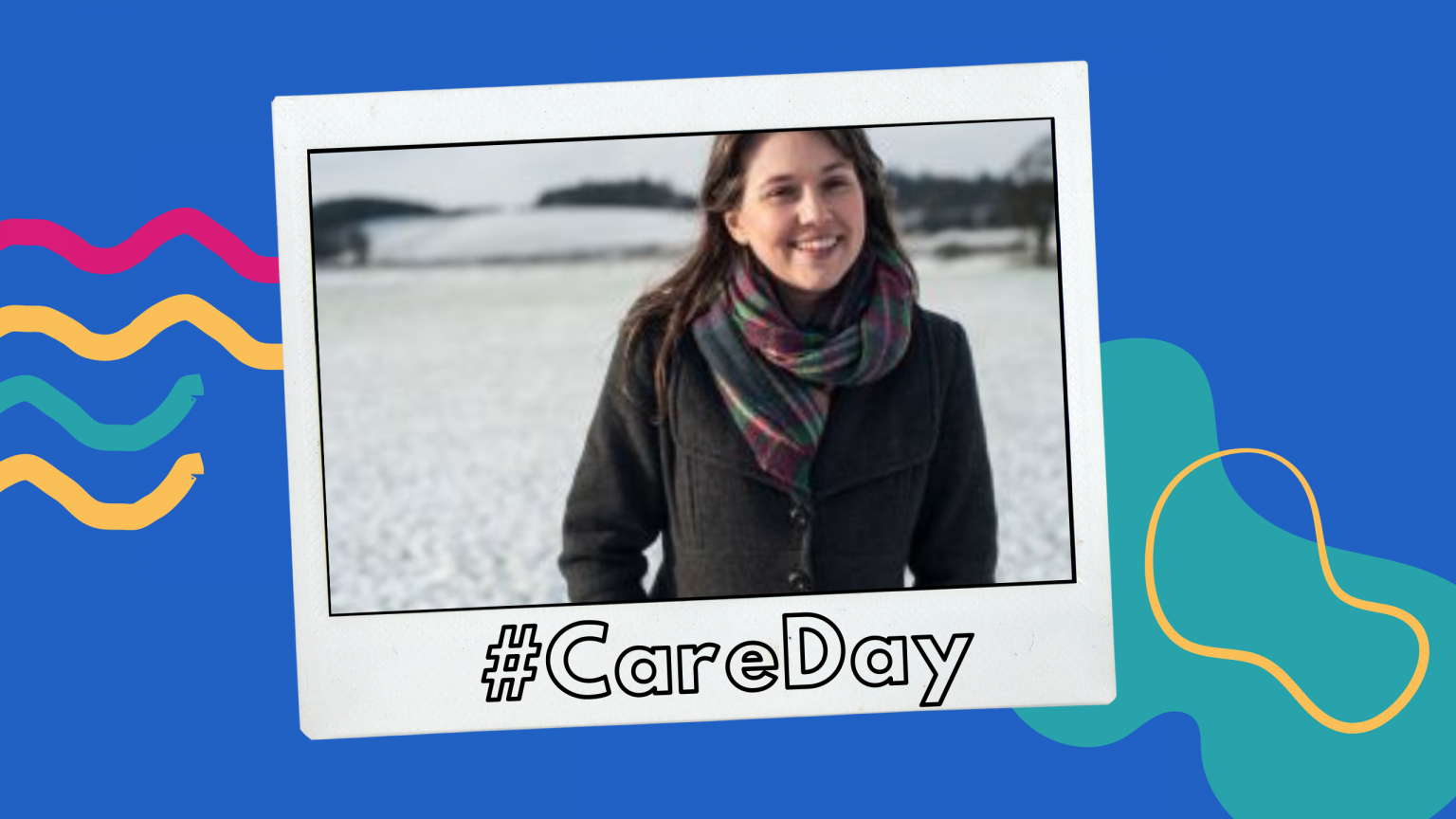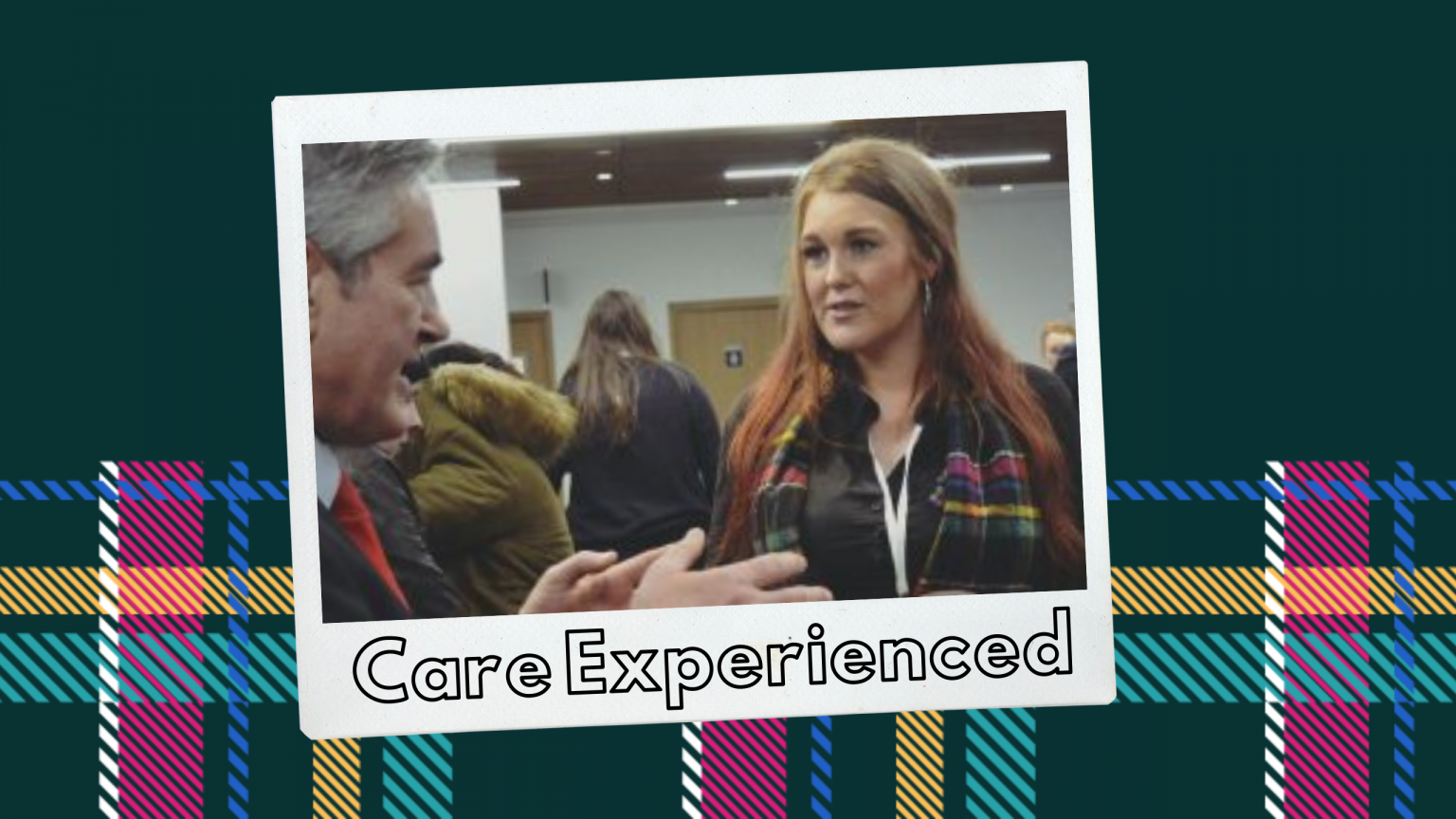On Monday, the Commission on Widening Access published their final report. I was delighted to see that some of the recommendations in the report were directly aimed at providing better support for Care Experienced young people. Last year, I went to the first Commission meeting and spoke to everyone in the room about my experiences of education.
Ever since I started campaigning for Care Experienced people’s rights, I learned that when people with power truly listen to our voice, it leads to positive change. People showed me that my voice and personal experience were powerful enough to create change for children and young people currently going through the care system in Scotland. One thing I doubted however was whether speaking out would change my own life also.
As I sat on the train on Monday morning reading the report, I began to realise just how much my own voice had changed my own life. In the report, the commission highlighted its philosophy as one of ensuring “equal access” to higher education. The report describes the inequality in higher education as being “unfair, damaging and unsustainable.” The report also describes equal access as being:
- fundamentally about fairness;
- a social good;
- an economic good.
In my own opinion, providing equal access to higher education is simply the right thing to do. However, we live in a society where the “right thing” isn’t always done. As a young woman who lived through the Scottish care system, I am more than familiar with some of the barriers to further and higher education. Above all, speaking up but having your voice ignored is something I am all too familiar with. In the report, the Commission made 34 recommendations in total.
One recommendation which particularly stood out to me was one around tackling student debt for care experienced young people.
The report recommends that the Government provide a bursary for care experienced students instead of the loan which is currently provided. This would prevent care experienced students from accumulating huge amounts of debts while at university on top of all the debt which they’re most likely to get into before even getting to university. Reading this recommendation reassured me that when I shared my story with the commission on widening access, they heard me and they have chosen to do something about it.
As I read this, I realised that this could potentially help me during my time as an undergraduate LLB Law Student at the University of Strathclyde. During my time as a college student, I have struggled financially and I know first-hand what it feels like living in debt.
In November 2014, First Minister Nicola Sturgeon, shared her mission with the publication was to ensure that:
“A CHILD BORN TODAY IN ONE OF OUR MOST DEPRIVED COMMUNITIES WILL, BY THE TIME HE OR SHE LEAVES SCHOOL, HAVE THE SAME CHANCE OF GOING TO UNIVERSITY AS A CHILD BORN IN ONE OF OUR LEAST DEPRIVED COMMUNITIES.”
Upon reflection on this statement, a number of Care Experienced young people “leave” school, not as a matter of choice, but as a result of a decision made by someone else.
Statistics tell us that Care Experienced students are seven times more likely to be excluded from school than their non-looked after peers. We are also told that Care Experienced young people are more likely to see the inside of a prison than a University.
For long time, educational outcomes for care experienced young people have been very poor. This is reflected throughout their educational journey, from primary school on.
One of the recommendations in the report is for Care Experienced young people to be traced and supported from primary school all the way to university level. This is essential as often we hear of Care Experienced young people who are “lost in the system”. I am often asked what happens to the children and young people who drop out of school. The truth is that majority of the time no one follows up on them.
If our young people are supported and guided throughout the education journey, then they will have a greater chance of achieving.
The Commission report also recommends that a Care Experienced young person who meets the entry requirements of a course should be entitled to a place. I believe this is a huge step towards equal access. The majority of Care Experienced young people leave school with barely any qualifications, having left school at the age of sixteen. For those who do end up going to university, it is often via college – where they will have accrued even more debt.
There are some great recommendations in the report and I hope that the Scottish Government will accept them. True change is only ever recognised when words are turned into action. I want the Scottish Government to know that we are willing to help them every step of the way.








